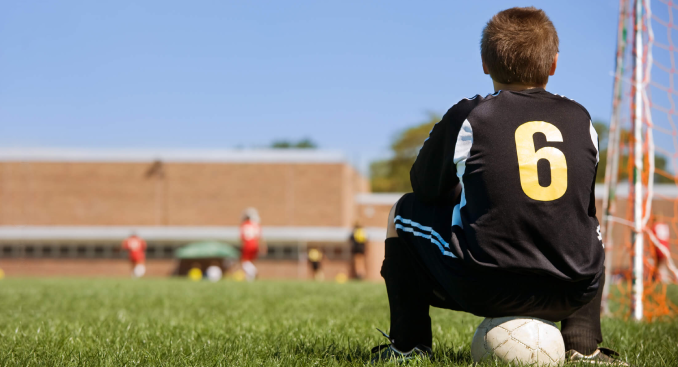Behavioral Health Problems in Kids: Overcoming the Stigma

Behavioral health problems, like attention deficit hyperactivity disorder (ADHD), acting impulsively or talking back, are common in children. But still, these conditions can have a negative stigma, which keeps some parents from finding help for their child.
Andy Sweeney PsyD, a clinical psychologist for TriHealth’s School-Based Behavioral Health Services, reminds parents that it's okay – and healthy – to seek support. “Sometimes it’s helpful to think of a psychologist, working with your family, as a personal trainer,” he explains. “It can be helpful having somebody tell you exactly what to do or push you a little bit until you have things under control.”
Behavioral Health Problems: What Are the Signs?
Behavioral health is a state of mental and emotional wellbeing, defined by how a person thinks, feels and acts in certain situations. Common symptoms of behavioral health problems include:
- Not following instructions
- Talking back
- Poor social skills
- Grades dropping
When a parent calls and asks if their child’s behavior is something that needs to be addressed by a professional, Andy typically asks if it’s interfering with the way their family is functioning or the way the child performs at school. “That’s usually the litmus test for whether parents should seek additional help,” he explains.
How to Treat Behavioral Health Problems
Most of the kids Andy works with are between the ages of five and nine, and are typically referred by parents or teachers who notice that the child is acting out at home or in the classroom.
From there, he has two initial meetings – one with the parents and one with the child. Then, he does an observation of each parent playing with their child. “While I’m observing, I’m looking for specific things. I’m counting how often they are encouraging or positive, and also, how often they ask questions of their child or correct them,” Andy explains. This gives Andy a baseline of what the parent-child interaction looks like. He also has another session with only the parents, where he teaches basic play therapy skills for the parents to practice with their child at home for five minutes a day.
Andy then implements a therapy program called Parent-Child Interaction Therapy (PCIT). “It has 20 or 30 years of research supporting it, so that’s why I like it so much,” he points out.
Parent-Child Interaction Therapy (PCIT): How it Works
PCIT involves weekly sessions, which include both the child and his or her parents.
These sessions begin with a few minutes of observation, where Andy counts behaviors to see how parents are progressing with the play therapy skills he taught them early on. During the rest of the session he’s usually coaching the parents through some different play therapy techniques while they interact with their child. Sessions are typically divided into two phases, with phase I focusing on play therapy skills. Once parents have mastered those play therapy techniques, they move into phase II, which focuses on giving the child clear instructions and discipline.
Some facilities have one-way mirrors, with the psychologist in another room, watching the parent-child interaction and communicating instructions to the parent through a sound device the parents wear in their ears.
Sessions usually last for 12 to 16 months, depending on how much help is needed to improve the child's problem.
The Bottom Line: Don't Place Blame
Andy always reminds parents that their child's behavioral health problems are not one person's fault. He also says that some people tend to place blame on the child, which isn't the case, either. "I've never met a bad kid," he says. "If things get to that point, it's because it's been a cycle, where kids are acting up and parents respond in a certain way. What started off as maybe not a big deal has spiraled into a bigger deal."
Get Help Now:
513 363 6256
Donate:
TriHealth’s School-Based Behavioral Health Services are partially funded by the Bethesda Foundation. Donate now.